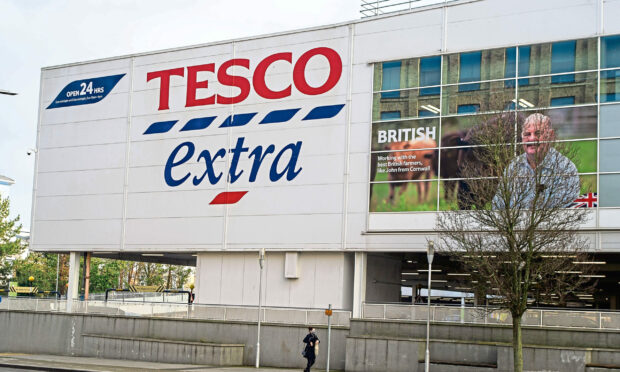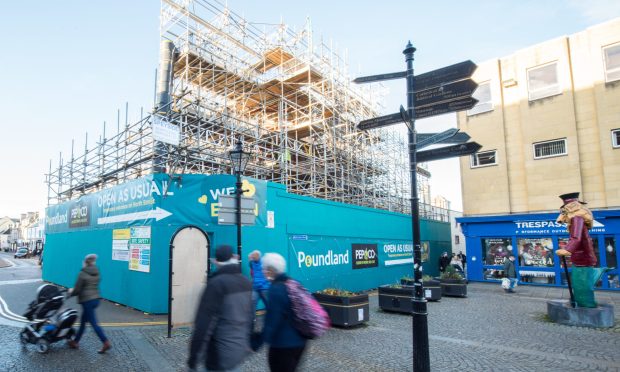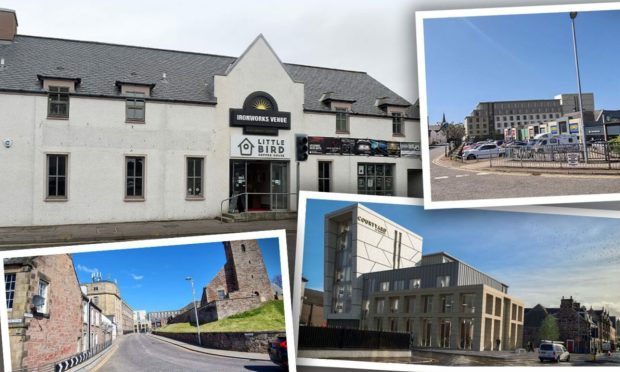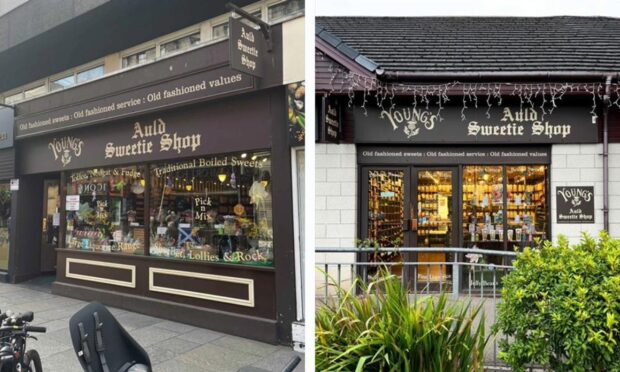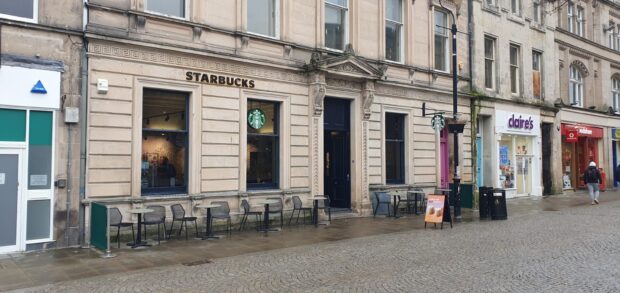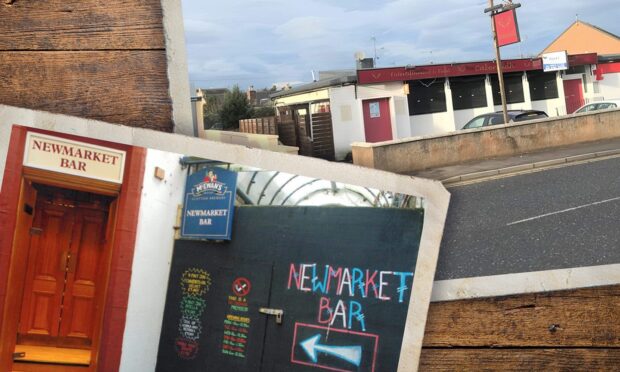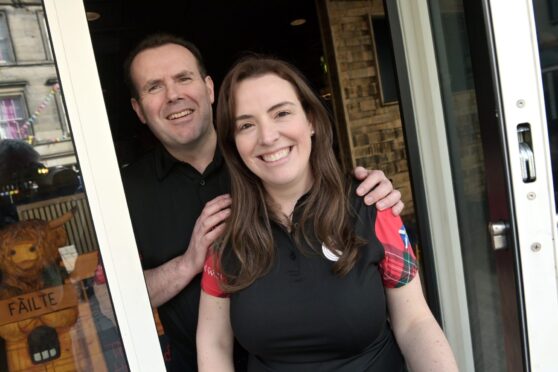Tesco has said that its profits tumbled by around a fifth over the past year after coronavirus costs of almost £900million offset surging sales.
The supermarket giant said yesterday that pre-tax profits slid to £825m for the 12 months to February, compared with £1.03 billion the previous year.
It said profits were weighed down by £892m Covid-related costs and the company’s decision to hand £585m in business rates relief back to the Government.
The bumper bill of pandemic costs was driven by hiring staff to cover workers impacted by Covid-19 and investment in safety in stores.
Tesco hired almost 50,000 temporary workers during the pandemic, about 20,000 of whom have joined the retailer permanently.
It had benefited from a jump in demand for groceries during the pandemic, with more meals eaten at home amid restrictions on the hospitality sector and changes to working habits.
Group sales excluding fuel increased by 7% to £53.4bn for the year, buoyed by soaring online sales.
Online sales jumped by 77% to £6.3bn in the UK as the company doubled delivery capacity to meet rising demand from housebound customers.
The group said it has pumped significant investment into keeping its prices low in a bid to match its discount rivals, with Tesco launching its Aldi Price Match campaign last year.
It said it has made progress in the “value perception” among customers as a result.
Chief executive Ken Murphy said: “Tesco has shown incredible strength and agility throughout the pandemic.
“By putting our customers and colleagues first, we have built a stronger business.
“While the pandemic is not yet over, we’re well-placed to build on the momentum in our business.
“We have strengthened our brand, increased customer satisfaction and improved value perception.”
Donald Brown, senior investment manager at Brewin Dolphin, said: “Tesco’s results reflect the sometimes tricky position that supermarkets found themselves in over the last year. Although they have largely been able to trade through the last 12 months, this has come with significant extra costs.
“The dividend remaining protected, albeit unchanged from last year, is a positive sign and suggests management are relatively confident in the medium-term outlook.”
Shares in the company moved 3.1% lower to 224.9p in early trading.
Recently released figures showed that, across all retailers, grocery sales in the UK rose 7.4% in the 12 weeks to March 21, in a marked slowdown compared with previous months. The research, by Kantar, also revealed a 3% fall in sales in the four weeks to March 21, compared to a year earlier – the first comparison with the first national lockdown that saw supermarket shelves stripped bare by panic buying at the start of the pandemic.
Kantar said the figures showed shoppers made 117million fewer trips to supermarkets last month than in March 2020.
Iceland saw the strongest growth in the three-month period, excluding online-only business Ocado, with a jump in sales of 14.3%. Aldi was the worst performer, with growth of just 1.5%.
Tesco increased its sales by 8.5% and once again gained share to capture 27.1% of the market, up 0.3% compared to the same quarter last year.
Online sales also slowed in the four weeks to March 21, with signs that shoppers are returning to physical stores, with market share dropping from 15.4% in February to 14.5%, equating to 13m additional trips to supermarkets.
In February, Tesco renewed its call for a 1% online sales tax to be slapped on digital retail giants such as Amazon.
The plea came as Mr Murphy joined 17 other bosses in signing a letter to Chancellor Rishi Sunak ahead of last month’s budget calling for a permanent reduction in business rates to put them on a “level playing field” with their online rivals.
With other signatories including Asda chief Roger Burnley and Morrisons chief David Potts, the coalition of retailers and landlords said reform should ensure that online retailers pay similar levels of tax to brick and mortar firms.
